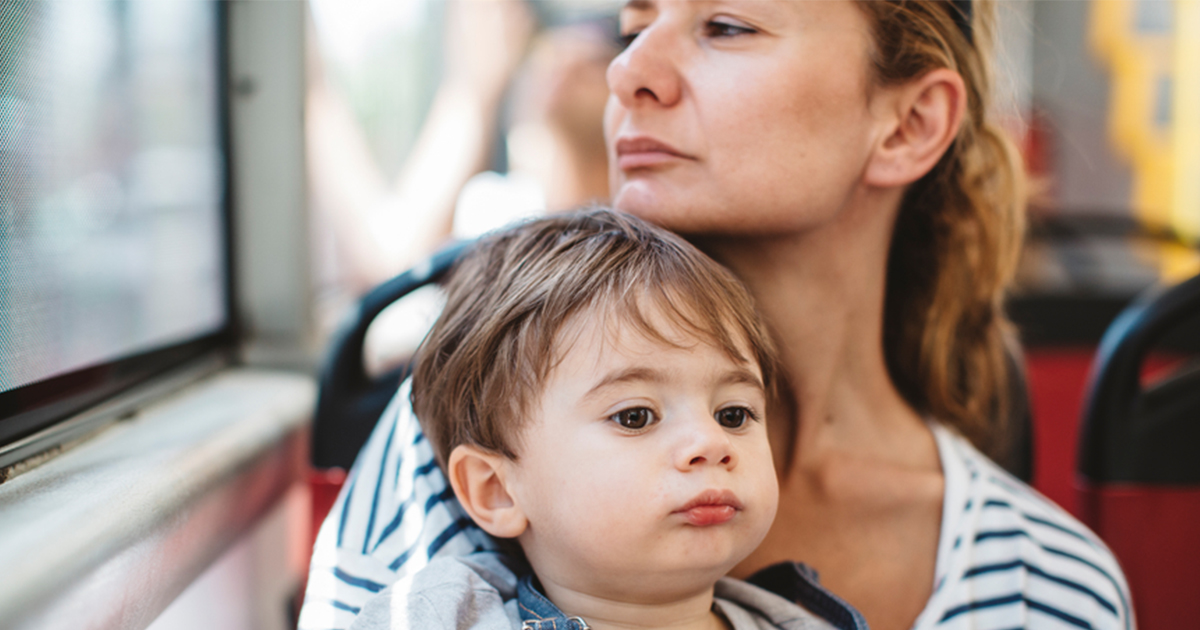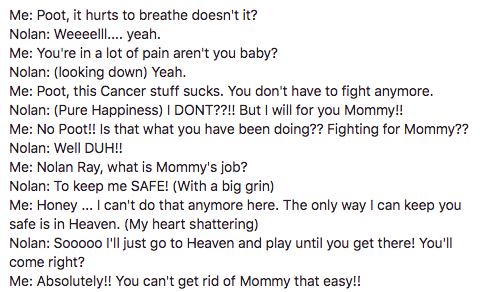Mom's Viral Post Shines Light on What Childhood Cancer Really Looks Like

By:
After losing her son in February to cancer, one mom detailed in a heartbreaking Facebook post his final moments of life.
 Stocksy/Nasos Zovoilis - stocksy.com
Stocksy/Nasos Zovoilis - stocksy.com
Ruth Scully describes the final hours with her "heroic" four-year-old Nolan in the hospital. They played with Nerf guns, watched YouTube videos, and smiled as many times as they could.
She recounted a conversation when Nolan told her that despite being in great pain that he would "fight" for his mommy:
 Ruth Scully/Facebook - facebook.com
Ruth Scully/Facebook - facebook.com
She hardly ever left his side except for one day when she decided to take a shower, she wrote being told that the moment "the bathroom door clicked" was when he regressed into a coma. But according the mom, during the coma "a miracle" occurred: Nolan briefly woke to tell her that he loved her.
The post, which has been shared over 600,000 times, marked two months since her son died, "two months of absolute hell" Scully wrote, "Now I am terrified to take a shower."
Scully's post resonated with many other parents who had lost their own children to cancer with many parents posting pictures of their own children and sharing similar stories.
Nolan suffered from Rhabodomyosarcoma, a rare soft tissue cancer, which makes up about 3 percent of all childhood cancers, according to the American Cancer Society.
Nearly 16,000 children were diagnosed with cancer and roughly 1,900 children died from the disease in 2014, according to the National Institute for Health (NIH). Approximately one in 285 children will be diagnosed with cancer by age 20, according to the NIH. According to the American Childhood Cancer Organization (ACCO), 80 percent of childhood cancers are diagnosed only after the disease has spread to other parts of the body.
Pediatric cancer receives less funding than adult cancer.

Only 4 percent of federal funding is dedicated to childhood cancer research, and it's decreasing. NIH's investments in pediatric cancer research dropped from $4.79 billion to $185.1 million in 2013, according to Newsweek. Childhood cancer is less profitable, and consequently ignored by pharmaceutical companies, unlike adult cancer research which usually comes from pharmaceutical companies, Newsweek reported.
Instead of developing drugs and treatments for children and testing them on adults, drugs are developed for adults and then tested on children, The Atlantic reports.
The mom calls out this in her post writing: "I look at everything he accomplished in four short years and can only think of what he could've accomplished with a longer life. But sadly because of Childhood Cancer (Rhabdomyosarcoma to be specific), the world and our family will miss out on someone so full of love, who just wanted to protect and serve. We HAVE to do better with funding, research, [and] treatment options."
Read the mom's full post below.
